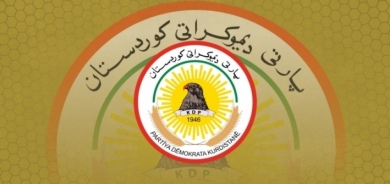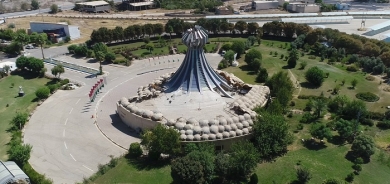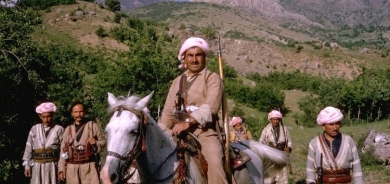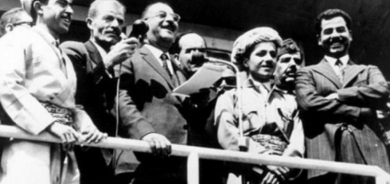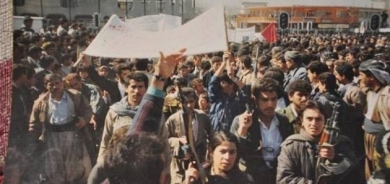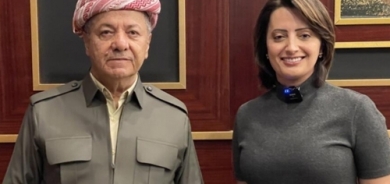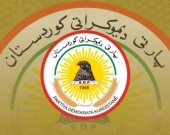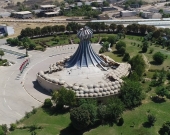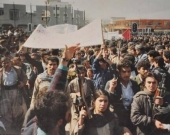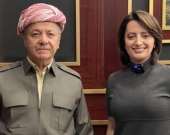Different Problems of Democracy Development in the Developing Countries

Participation of the People and the Role of the Political Parties
The Political parties, opposition or ruling parties; play an essential role in democracy development process and each has a special influence upon the governance system. The beauty of democracy is much clearer in the point that; all the political parties take the responsibility for the differences in the system and the speed of democracy development process. Regarding to this matter the Professor Patrick M. Regan in his research (Democracy, Threats and Repression in the Developing Countries) mentions that usually a non-democratic force or anti-democratic force rises as an opposition, fights the ruling party and claims for many demands that doesn’t fit with the situation, in such countries where the democracy institutions haven’t took the root yet and the democratic cultures haven’t been well developed, these anti-democracy forces try to weaken the institutions further and to destroy the semi-democratic system by their demands. Regarding this case, we interviewed the Professor Demir Grubisa, professor of Political Science and International Relations in Rebecca University, Croatia, in his responds exclusively to Gulan magazine he said: (Democracy, as the rule of the people, by the people and for the people, grew in different social, economic and cultural settings. Therefore social, economic, political, religious and cultural conditions determine the variations in the type or model of democracy that develops in a specific country. As human rights are universally recognized, democracy is also an universal value. But it develops in specific and particular environments, and these environments determine the peculiarities and specific colors of each model of democratic society. We should realize the fact that there is no perfect democracy in the world. Churchill used to say that democracy is the less of all evils, the "less worst" political system that humanity invented. The pathologies of democracy that we have to be aware of are many. Among them are political demagogy, i.e. populism; political hypocrisy, i.e. the gap between words and deeds; political manipulation, the use of political instruments to distort democracy and to provide group interest gains; political corruption, i.e. the abuse of political power for non-.deserved advantages and personal gains or group gains; political paranoia, i.e. the use of fear of external or internal enemy to limit democracy; and finally, political violence that can be verbal (i.e. hate speech), psychological or even physical - and that ends in tyranny or dictatorship with a pseudo-democratic mask)). The Professor Grubisa, who’s one of the advisers of the Croatian President and has practically worked in the new democracies, and also have a good experience, regarding the role of political parties, we also asked him if: to what extend do the political parties play essential roles in democracy development process? In his responds Professor Demir Grubisa answered and said: ((Political parties are of seminal importance for democracy. Political pluralism is not possible without the mediation of political parties. However, party pluralism is only the first step, since democracy means openness, transparency and accountability. Often political elites resort to political manipulation - as in the example of transferring the guilt for political pathologies they develop, corruption and other forms on others. Therefore a society must develop all forms of democracy in order to "guard the guardians". It is not enough to have representative, or parliamentary democracy, as it was in the past or in the first steps of transition. Therefore democracy must include also direct democracy, participative democracy (i.e. participation of all the citizens in the governance of the society) and deliberative democracy. Thus; democracy will not be limited only to some forms of government, but the very same concept of government will be changed into governance, that supposes that every citizen has the right and the duty to partake in the decision concerning society affairs, that means more "checks and balances", more transparency, openness, and - above all - participation. Each society must develop a democratic culture that takes into consideration the cultural, religious and political traditions and patterns of this very society, but must transcend also the rooted authoritarianism that takes different shapes and forms in each society)). Again; and regarding to the importance of political parties; we interviewed the Professor Macartan Humphreys, professor of political sciences in Columbia University and specialist in strategic studies of development, he replied to our questions as the following: (Political parties come with a tradeoff. The problem with parties that they put a layer between voters and policy outcomes. For example parties might effectively get to choose who the representatives for a particular area are; or a strong party might make a representative vote one way even if the representative's constituency wants the opposite. So that's a problem and there is something of an ideal of direct democracy where each voter feeds into decision making directly without being represented through parties; or in which voters elect independent representatives. In practice though the organizational problems of politics without parties probably outweigh the benefits. Parties play crucial roles in organizing groups with common interests, coordinating strategies and so on. So I agree they are critical and parties are likely to form even if you try to do away with them. Should parties form the institutions? They should certainly feed in, but the formation of institutions should depend on more than just parties; in a way the institutions provide the forum in which parties compete and so should enjoy broad buy in).
In spite that all of these ideas are strongly criticizing the political parties; but again, no one can ignore the role of the political parties. But the other question is “how to maintain the balance between participation of the people and the representativeness type of the political parties?” regarding to this question, in his responds; the professor Salzman says: (I really don’t have an answer to that, except to say that there is something about it that has to be cultural and specifically reflecting on the areas of the Mideast that cultures decidedly anti-participatory, and so again something has to change at that level, and on other regions of the developing democracies that can be encouraged I think where you saw communism and post-communist countries where you see changing, and also in Latin American countries we have seen mass of extension of women (female) involvement in society and in many ways men in those societies trust women a lot more than they trust men, so when they see a female presidential candidate they actually helps change their perspective because their being about their mom and their sisters and their grandmothers whom they fear and love very much and they were willing to refer to like they did in their normal life, but if that doesn’t occur, if you don’t defend your grandmother if you don’t defend your mother, then you’re definitely not going to defend them politically, nor you respect them politically even if they just catch a vote. So again this is cultural issue that varies per region in the world. Today as parties are created and democracy is fashioned, we see the centrality of parties as being (I think like you said) it is key to the development of democracy, and I would see this being true for number of reasons; one of them, being that it is very difficult to create a set of state institutions by asking everybody in your country, obviously that will be an impossibility in any country of any size, as there are too many people. Then you must work to some type of representative to help build those state institutions. Political parties in most developing democracies and developing nations are essentially extensions of existing groups, so a political party especially in a country like Iraq is representing a group, and that group presumably is putting its confidence in that political party so where able to kind of bridge this democracy gap when democracy doesn’t exactly exist. By having some sort of representative in this case manifested in the political party itself, so it is absolutely a key within looking at the other regions of the world we see and I think Iraq is very similar here, a conflict that’s been resolved and they’re trying to pull out democracy, and while pulling out democracy you look to each side of that conflict to participate in creating those structures and then the political parties naturally rise from those conflicting parties where those conflicting sides themselves. So I think that your question is thought on identifying the importance of political parties as they’re essentially an extension of opposing sides, yet they’re hopefully in the best position to negotiate with each other and to participate in some kind of political structure, those representing their people but being supporting that political structure eventually)).
But, what sometimes become the problem in the relations between people and the political parties is that people lose their trust in the political parties, regarding to this matter; the Professor Peter Michael Sanchez, during his interview with Gulan magazine says: (Well, you know that is a problem with any political system whether it is democracy or not. You know, that is what happened in the Soviet Union, people had no confidence in the political system. And in fact in Latin America there is a big difference among the countries as to how much they trust in their parties and their political systems, so you have found where there is extremely little trust, but others where there is high level of trust, in fact some of the Latin American countries, people have greater trust in their parties than even in the United states, for example like Costa Rica. So, the thing that all of Latin America the people don’t trust the political system is really not right, yes many countries don’t do, but some do, and some have a high level of trust in their parties. The main vehicle to which the political system gains the trust of the citizens is basically to be an efficient and just in fair political systems, whether again it is democracy or not. And of course, the problem in Latin America and in post-communist countries and the problem of the many Islamic countries is that the governance either really don’t do enough for the citizenry or they don’t have the resources to do very much for the citizenry. Or if the government is either broke, has no money, or is corrupt or the leaders don’t really respond to the citizens then over pretty soon citizens will just ignore the government and have no really illusion that the government is going to do anything for them).
Translation and transcription: sheban ferhad

